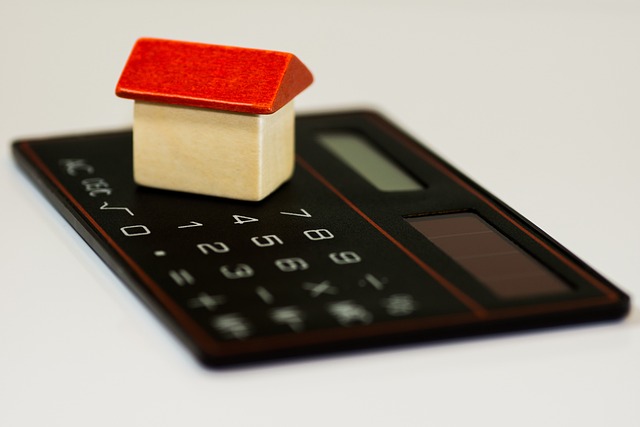 So, you are ready to sell your home! Whether you are up or down-sizing, selling your home can feel like a large undertaking – that’s where I come in! To help make this process as smooth as possible, here are a few tips about what to know before you sell your home:
So, you are ready to sell your home! Whether you are up or down-sizing, selling your home can feel like a large undertaking – that’s where I come in! To help make this process as smooth as possible, here are a few tips about what to know before you sell your home:
Improve Your Curb Appeal
When it comes to selling your home, first impressions matter. If a potential buyer pulls up to see overgrown weeds, clogged gutters or cracked concrete, they may have a negative first impression of the home, making it harder to impress them once they are inside. Attending to landscaping and any outdoor maintenance or repairs will go a long way in making your home more appealing. A pressure wash and new coat of exterior paint can also do wonders to give your home a facelift!
Get Rid of Clutter
In addition to updating your homes curb appeal prior to sale, you also want to ensure that you are de-cluttering your space. Removing personalized photos, collectables, memorabilia and other Knick knacks will help open things up and allow potential buyers to envision their own belongings in those spaces. While major renovations are not necessary, a fresh coat of paint and managing any minor repairs will also help to ensure the best first impression!
Set a Reasonable Asking Price
One of the most important aspects for the successful sale of your home is to price accordingly. Even though it can be difficult, when selling your home it is vital to avoid emotional decisions or anchoring your listing price to your home’s previous value.
Choose the RIGHT Real Estate Professional
A real estate agent can help you maximize the sale of your home by working to get you the best asking price and help you walk through the sales process. Once you have a realtor in mind, it is best to conduct an interview to ensure they are the right fit for the job and that their interests align with yours.
Understand the Costs
Before you get to the point of reviewing a purchase offer, you should have a reasonable understanding of potential gains (or losses) within your acceptable price range.
To do this, you need to understand the costs of selling your home, which include:
- Real estate sales commissions
- Closing fees
- Title charges
- Transfer and recording charges
- Additional settlement charges, if applicable
- Debt obligations related to existing mortgages
If you’re looking to sell your home and need mortgage advice, please reach out to us so we can assist you with your next steps!
View more blogs here
#priceteammortgagesfergus #priceteammortgagesguelph #dominionlending #canada #ontario #fergus #guelph #ontariorealestate #guelphrealestate #waterloorealestate #mortgagebrokernearme #priceteammortgagesfergus #priceteammortgagesguelph #dominionlending #canadianmortgage #canadianmortgagebroker #mortgages #mortgagebroker #priceteam #canadianmortgageprofessionals #savemoney #homebuying #firsttimehomebuyer #bestbroker #homeselling #forsalebyowner #forsale #realestatemarket

 If you are in the market for a home or a new car, you are probably very familiar with your credit score. Lenders are one of the primary users of credit scores and it can have a huge impact on whether you get approved for a loan and just how much interest it is going to cost you. What isn’t well known about credit scores is where they come from, what makes them go up (or down!) and who else besides potential lenders uses them to make decisions? Your credit score is going to be with you for life, so why not take a couple of minutes to get the facts.
If you are in the market for a home or a new car, you are probably very familiar with your credit score. Lenders are one of the primary users of credit scores and it can have a huge impact on whether you get approved for a loan and just how much interest it is going to cost you. What isn’t well known about credit scores is where they come from, what makes them go up (or down!) and who else besides potential lenders uses them to make decisions? Your credit score is going to be with you for life, so why not take a couple of minutes to get the facts. When it comes to getting a mortgage, one of the more overlooked elements is the option to be able to port the loan down the line. This article will inform you about what to know about porting your mortgage.
When it comes to getting a mortgage, one of the more overlooked elements is the option to be able to port the loan down the line. This article will inform you about what to know about porting your mortgage. CHIP reverse mortgages are now becoming a more mainstream financial solution for Canadians 55+ ; they are being used by thousands of Canadians for a variety of reasons. Homeowners 55+ are unlocking their home equity for tax-free funds that don’t have to be re-paid until they decide to sell their home. Consider your own financial needs. Do any of these 5 common scenarios sound familiar?
CHIP reverse mortgages are now becoming a more mainstream financial solution for Canadians 55+ ; they are being used by thousands of Canadians for a variety of reasons. Homeowners 55+ are unlocking their home equity for tax-free funds that don’t have to be re-paid until they decide to sell their home. Consider your own financial needs. Do any of these 5 common scenarios sound familiar? Despite the effects of the current onslaught from inflation and ever-increasing prices, the basic concept of budgeting hasn’t changed. Dividing up your money into little piles for the various things you need (and want) doesn’t seem like such a difficult process, so why is sinking your household budget so hard to put into practice?
Despite the effects of the current onslaught from inflation and ever-increasing prices, the basic concept of budgeting hasn’t changed. Dividing up your money into little piles for the various things you need (and want) doesn’t seem like such a difficult process, so why is sinking your household budget so hard to put into practice? Getting a mortgage after bankruptcy can be tricky. If you have had to declare bankruptcy, you may be wondering what is next.
Getting a mortgage after bankruptcy can be tricky. If you have had to declare bankruptcy, you may be wondering what is next.